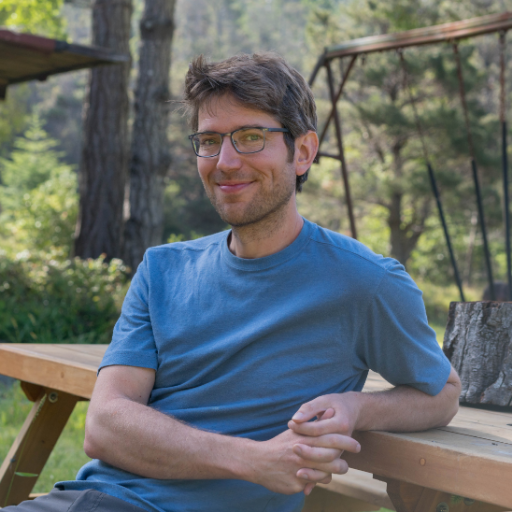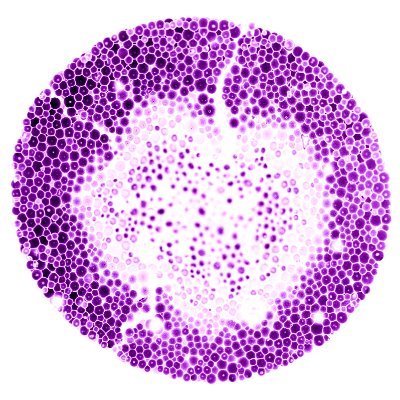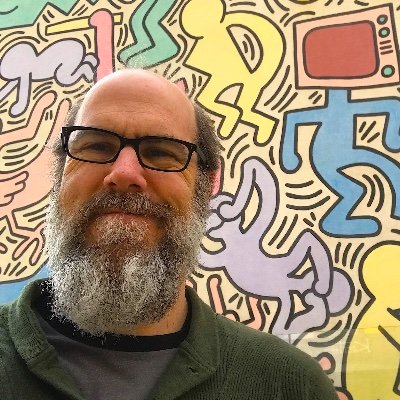I’m delighted that our paper on the Multicellularity Long Term Evolution Experiment (MuLTEE) has, at long last, been published. This paper establishes the foundations of what I’d like to work on for the rest of my career. 1/25 Free, full access link: https://t.co/lWh33eHQrf
52
466
2K
Replies
In short, we’ve established an open-ended LTEE exploring the evolution of multicellularity. Over 600 rounds of selection, we observe the evolution of macroscopic multicellular groups, which are 10,000x tougher as a material than their ancestor. 2/25
1
4
73
This was quite surprising, and the paper is written a bit like a spy novel, as we explore the physical basis through which snowflake yeast undergo sustained multicellular adaptation. 3/25
1
0
53
In addition to learning how snowflake yeast evolve in our experiment, I think we learn something profound about how groups of cells become Darwinian units capable of open-ended evolution. This is the last paragraph of the discussion:
2
4
94
I wrote up a detailed Tweetorial on the preprint when we submitted it in 2021, and it’s still quite accurate. The new paper has way more controls and a neat synthetic biology experiment in which we engineer macroscopic size directly, but the central message is the same. 5/25
2
0
34
So if you want to learn more about the paper, check out this thread and read about it here! 6/24 https://t.co/F9gkO4Z9eJ
Well, this has been a long-awaited day- the first paper on our multicellularity Long Term Evolution Experiment (LTEE) is on the BioRxiv. Ever wonder how simple multicellular organisms evolve to become larger and more complex over thousands of gens? 1/35 https://t.co/0TahpNRuD7
1
4
49
Here, I want to talk about this paper more generally. Ever since first evolving snowflake yeast with Mike Travisano in 2010, I knew I wanted to do a long-term evolution experiment in the style of Rich Lenski. 7/25
1
0
24
Between 2010 and 2018, we had a lot of false starts. We kept seeing the same thing: snowflake yeast would evolve to get larger, then plateau. It was discouraging, and I was getting ready to conclude that they were capable of sustained multicellular evolution. 8/25
1
0
23
The first key crucial historical contingency was hiring Ozan Bozdag in 2016. Ozan was interested in the role of oxygen in multicellular evolution, and set up three treatments: obligately aerobic, mixotrophic, and anaerobic. 9/25
1
0
31
This turned out to be crucial: we had only ever done our experiments with mixotrophs under low O2, and it turns out that scarce oxygen (relative to no O2 or high O2) strongly suppresses the evolution of larger size. For an explanation, read this: https://t.co/ft3iivfxzO 10/25
New paper out today, “Oxygen suppression of macroscopic multicellularity”. https://t.co/ruzk4v50K7 This work was led by @Ozan_g_b, in collaboration with Chris Reinhard, @SFI_elibby, and @PineauRozenn. Support by @NSF, @NASAAstrobio, and @PackardFdn. A thread.
2
0
37
Ozan also is just an incredible scientist. He’s super thoughtful, careful, patient, and has vision to match his persistence. The MuLTEE exists because he breathed life into it, 7 days a week, 365 days a year. 11/25
3
0
41
The second crucial piece of historical contingency is our collaboration with @YunkerLab. We’ve been working together, talking virtually every day, for more than 7 years. We co-advise students. We even physically moved our labs to be closer and facilitate collaboration! 12/25
1
0
24
So much about the early evolution of multicellularity in our system is biophysical: the emergence and heritability of multicellular traits, the mechanisms underpinning the origin of their life cycle, the route through which they evolve tougher bodies, etc. 13/25
1
0
26
I've learned that multicellularity is as much about physics as it is biology. It is Darwinian biomechanics, and bodies are a Darwinian material. 14/25
2
3
47
Without being able to understand the physics, it would like having a book written in a language I don’t speak. I’d know that there was something cool there, but I wouldn’t know what it is. We’ve also learned cool physics from studying the evolution of multicellularity! 15/25
1
0
20
The MuLTEE might exist in a universe where Peter and I didn’t collaborate, but it wouldn’t be the same. It’d be a lot less rich. 16/25
1
0
18
Our team on this paper has likewise been incredible. @dahaj1897 and @thomas_day_ were co-advised by Peter and I, and anchored the biophysics work. @pennyckahn, Tony Burnetti, @kai_tong_mc25, @peterlconlin and @DungLac8 helped wrangle SF yeast in ways they are experts at. 17/25
1
0
21
We had help processing large imaging datasets from the volumetric electron microscopy by @Iishiiyaa and @evadyer. Typing this out makes me realize just how fortunate I have been to work with such an incredible group of scientists and humans. 18/25
1
0
17
We also had a good experience publishing at @Nature- in contrast to what I have often heard, this was the most rigorously-reviewed paper of my career. We had 5 referees who did a great job. Revisions took ~18 months and resulted in a ~60 page response doc. 19/25
1
0
28
I recommend checking out the reviews, which are public. I'm not sure how often I would like to go through this level of revision (the 2 year delay was hard on graduating students, and it was expensive), but no question it improved the paper. 20/25 https://t.co/Ne6NamGctE
2
0
21
I’d also like to thank our funders! The MuLTEE was supported in the early days by my @PackardFdn Fellowship, and later became the central project of my @NIGMS R35 MIRA. We also leveraged some support from the @HFSP during our extensive revisions. 21/25
1
0
16
Perhaps most of all, I am excited for the future. Snowflake yeast are not showing any signs of slowing down, and are continuing to do really interesting things. 22/25
1
0
18
We’ve got a range of projects under way, examining the evolution of cellular differentiation, emergent fluid flows, the eco-evolutionary dynamics of multicellular diversification, entrenchment of multicellularity, and more. 23/25 https://t.co/lW0JHasZik
1
1
22
We have preprints on some of these projects already, and some will be submitted shortly. You can find preprints / papers on our website. For the latest, keep an eye on this twitter space, as I always write detailed twitter explainers of new papers. 24/25 https://t.co/hnDqWGSe7k
1
0
18
Thank you for sticking with me to the end! I’ll close by saying that I'm grateful that this admittedly somewhat insane life-long quest is working out, and that we have the support of our colleagues and community. It’s a lot of fun. 25/25
3
0
36
Whoops, looks like I overlooked tagging @mtravisano and @RELenski (my academic father and grandfather, respectively!) in tweet 7. Sorry about that! Speaking of historical contingency, it's 100% true that this project wouldn't exist without either of them, as well.
4
0
27
@wc_ratcliff Congratulations! This looks super cool. The preprint was awesome but this adds so much more to it.
1
0
2





